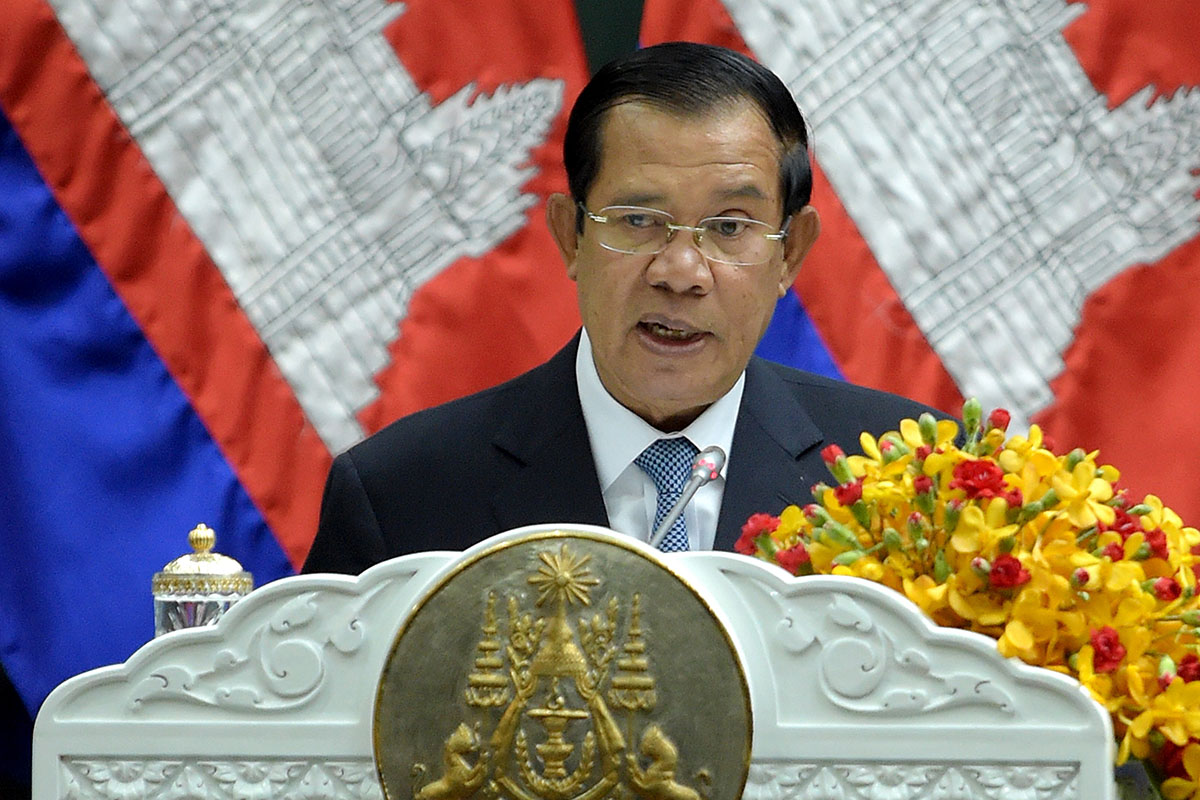Chief on the almanac for Cambodia next year is the general elections. Cambodian premier, Hun Sen will likely win with minimal opposition after dissolving the main opposition party, the Cambodian National Rescue Party (CNRP) and arresting its leader, Kem Sokha on charges of treason.
As the Western world and its allies turned their backs on Cambodia, in harsh rebuke over Hun Sen’s actions the longstanding leader of this Southeast Asian nation remains undeterred – knowing he can always turn to China for help.
On Thursday, an official said that China will donate ballot boxes and voting booths for Cambodia's 2018 election.
Beijing – a top ally and benefactor – has stuck by Cambodia's side, offering to provide an array of equipment for the July 2018 election.
"China pledged to give the equipment to serve the election in 2018," Dim Sovannarum, a spokesman for Cambodia's National Election Committee (NEC), told AFP.
He could not confirm the total cost of the donated gear, which includes computers, ballot boxes and voting booths.
The official – who denied Beijing was filling the gap left by the EU and the US – said the Chinese assistance would help "ensure transparency, accuracy and accountability" in the poll.
China is Cambodia's biggest source of foreign aid and regularly provides electoral support, including vehicles and other supplies worth $11 million for local polls held this year.
Beijing's total investment in the country topped $11.2 billion in 2016, according to official Cambodian data. Pump-primed by China, the economy this year is chugging along at almost seven percent. Chinese companies are driving a construction boom, from mega-dams to highways and casinos targeting Chinese punters.
Hun Sen is a regular visitor to Beijing, where he is lavished with soft loans without any censure on his demolition job on democracy. The flood of Chinese cash has significantly cut Hun Sen's reliance on Western donors, whose aid often comes with pressure to safeguard human rights and democratic institutions.
That "no strings" support has emboldened his attacks against critics in politics, the media and Western democracies like the US -- who he once needed for financial support. Cambodia's future now appears wedded to its new benefactor.
"China will continue to offer support to ensure Cambodia stay politically stable and economically sound," said political analyst Meas Ny.
Hun Sen’s crackdown
Western powers and rights groups have warned that the unprecedented crackdown could spell the death of democracy in the Southeast Asian nation.
The US and the European Union withdrew their backing after a Phnom Penh court dissolved the main opposition party in November – a move they said stripped next year's election of any legitimacy.
The ruling all but guarantees a victory for premier Hun Sen, an authoritarian leader who has been methodically sweeping out rivals as he looks to extend his 32-year run in office.
James Gomez, Amnesty International’s Director of Southeast Asia and the Pacific called the move an “outright repression.”
“The international community cannot stand idly - it must send a strong signal that this crackdown is unacceptable,” he said in a statement last month adding that “this is yet more evidence of how the judiciary in Cambodia is essentially used as an arm of the executive and as a political tool to silence dissent.”
It is widely known that the judiciary remains under the thumb of Hun Sen. The President of the Supreme Court, Dith Munty is himself a member of the Politburo and has had a long association with Hun Sen since the 1980s.
With Beijing’s backing, Hun Sen seems to be unstoppable and the elections next year will most definitely be a smokescreen for extending his rule. It seems that the now crippled Cambodia opposition cannot muster the energy to put up a fight.
It looks like Hun Sen is here to stay.
Additional reporting by Agence France Presse (AFP)
Recommended stories:
